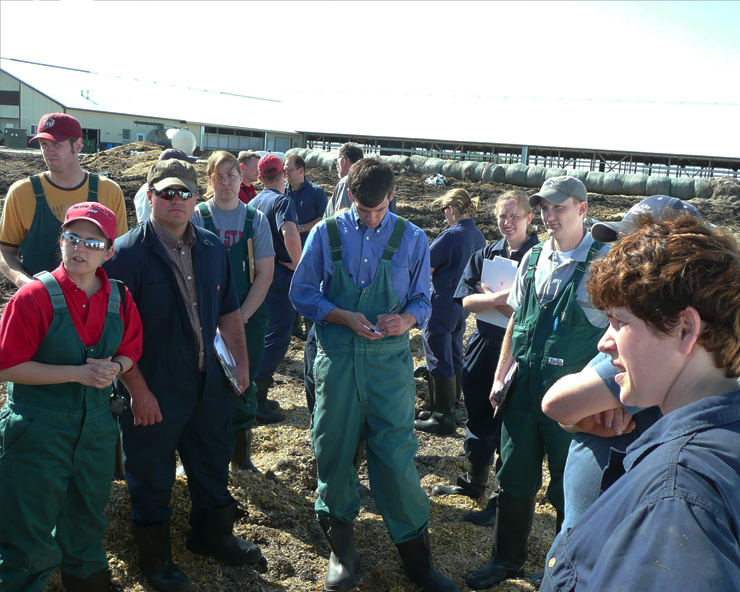We all started in agriculture by the influence of someone, whether our parents, grandparents, or friends. Most of us can tie that connection and love back to a specific person or group, such as 4-H, FFA, or agricultural group. As the percentage of the population in agriculture decreases and our global population increases, we must make food production more transparent and work to build the next generation of agriculturalists. By raising awareness of food production more and actively engaging with the next generation, we can help ensure a thriving agricultural future.
Mentorship in agriculture allows for sharing information, networking opportunities, career development, and problem-solving support. It bridges the gap between experience and opportunities. With fewer people growing up on farms or in rural communities, there is a growing lack of knowledge by consumers and of where their food comes from. This makes mentorship a key opportunity for those interested in agriculture and educating communities. Encouraging young people to take an interest in agriculture through mentorship programs, internships, and hands-on experiences can help bridge this gap.
Getting involved
Mentorship can look many different ways and can be what works for you to best contribute. A few ways to become mentors include:
- Joining established programs – Volunteering with 4-H, FFA, or local agricultural classes can allow you to provide information on areas you are familiar with while providing you as a resource to young individuals
- Offer internships – Consider providing internships if you have a farm, ranch, or facility. Even just a few days could allow young people to experience your occupation and learn from you in a practical setting. If an internship setting doesn’t fit with your role, consider doing ride-a-longs for high school or college-aged students to help them explore career opportunities.
- Engage in your community – Speaking at local events, participating in initiatives, hosting farm tours, or sponsoring local events demonstrate ways to get involved in your community and open the door to future connections.
- Be available and approachable – often, young people without a background in agriculture are hesitant to ask for mentorship opportunities. Being available, such as offering advice, sharing experiences, and answering questions, can be a great way to support young people.
Mentorship in agriculture is more than sharing knowledge. It is about connecting with the next generation of farmers and investing in them. Whether through formal mentorship programs or everyday interactions, we all have an opportunity to make an impact on a young member of our industry.
Resources:
Marbleseed: Farmer-To-Farmer Mentorship Program
GrowSmart Farming: Mentorship Opportunities for Aspiring Farmers

